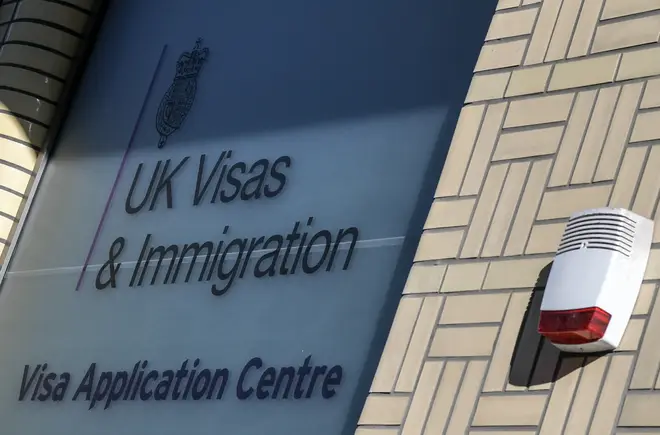
Oli Dugmore 4am - 7am
11 November 2020, 15:42 | Updated: 11 November 2020, 15:46

The Immigration Act that will end freedom of movement in the UK has become law after being given Royal Assent by the Queen.
Britain will move to a points-based immigration system from the very first day of next year, reversing decades of free movement enjoyed while a member of the European Union.
The Queen signed the legislation, known as the Immigration and Social Security Co-ordination (EU Withdrawal) Act 2020, into law on Wednesday following months of the Bill passing through Parliament.
Free movement will end at 11pm on 31 December this year, delivering on the government's manifesto commitment in the previous election.
It means the UK will be free to decide who enters the country, with the government saying decisions will be based on the skills individuals have to offer, rather than where they are from.
Read more: Priti Patel unveils new post-Brexit points-based immigration system
Explained: How the new points-based immigration system will work
Today, the #ImmigrationBill has received Royal Assent. This will end free movement and pave the way for the new points-based immigration system. pic.twitter.com/nRsqg9CXAI
— Home Office (@ukhomeoffice) November 11, 2020
Prime Minister Boris Johnson said: “Today marks the delivery of our promise to the British people to regain control of our borders and consider new arrivals on the basis of the skills they have to offer and the contribution they can make, not where they come from.
“The passing of this landmark Bill means that for the first time in decades we will have a firm and fair immigration system that will support our economy and see us build back better.”
Home Secretary Priti Patel said the legislation delivered on the government's promise "to end free movement, take back control of our borders and introduce a new points-based immigration system".
She added: “The Act of Parliament which ends free movement has completed its journey through Parliament and today achieved Royal Assent.
“This is an historic day in our new direction outside of the EU – controlling our own borders and delivering on the people’s priorities.”
Read more: Immigration bill to end freedom of movement suffers defeat in Lords
Watch: James O'Brien on MPs celebrating the end of freedom of movement

James O'Brien on the MPs celebrating the end of freedom of movement
However, opponents have criticised the Bill and condemned the government for celebrating the removal of the rights of British nationals to travel freely.
On Tuesday, LBC presenter James O'Brien wrote on Twitter: "Hmm. Citizens of 32 countries previously enjoyed free movement between 32 countries.
"31 countries will now enjoy free movement between 31 countries. One country will now enjoy free movement between zero countries.
"Priti Patel thinks you should celebrate being that country."
TV personality Professor Brian Cox agreed, saying: "I'll never understand why these people celebrate removing their own right to free movement. Everyone else in Europe still has an entire continent to call home."
Hmm.
— James O'Brien (@mrjamesob) November 10, 2020
Citizens of 32 countries previously enjoyed free movement between 32 countries.
31 countries will now enjoy free movement between 31 countries.
One country will now enjoy free movement between zero countries.
Priti Patel thinks you should celebrate being that country. https://t.co/mA8HbjdmIl
Under the new system, employers will be encouraged to train, develop and invest in British workers, with the government saying it will "drive productivity and improve opportunities for individuals", especially during the coronavirus pandemic.
Anyone applying for a UK visa will need permission in advance of entry and they will be awarded points for a job offer at the appropriate skill level, if they speak English, and for meeting the appropriate salary threshold.
However, Irish citizens will be free to enter and live in Britain as they do currently. EU, EEA and Swiss citizens living in Britain before 31 December 2020 can apply to the EU settlement scheme to continue living in the UK after 30 June 2021.
A marketing campaign is already under way to ensure businesses are ready for the changes.
The government is also introducing special schemes to make it easier for scientists, academics, investors, entrepreneurs, and health and care workers to enter the UK.
The Immigration Act started its passage through the Commons and the Lords on 5 March 2020.